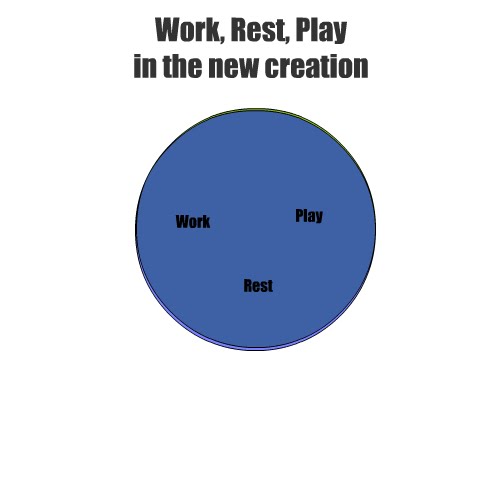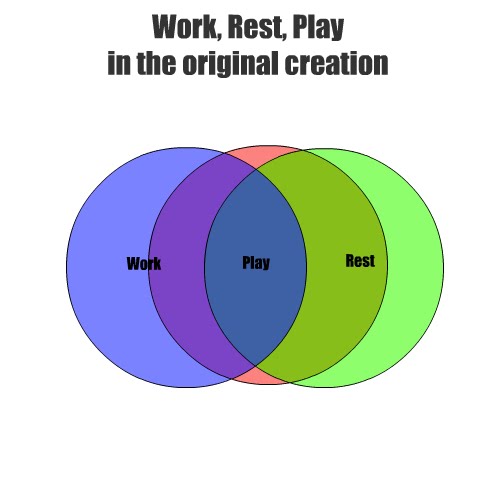So, the comment thread in that post I linked to from the Friendly Atheist yesterday has just about descended into anarchy. But there are some people in there intent on pushing the line that “the Bible is nasty to women.” Now, some nasty things happen to women in the Bible – but this doesn’t mean that the Bible affirms them. There are a few stories of rape, and a few cases where servants and concubines are used to produce children – that to our 21st century sensibilities look a little archaic. That’s because they are archaic. The Bible is an old book. It’s a product of its times. But let me introduce you to one of my favourite words – anachronism. According to Wikipedia, anachronism is:
“is an accidental or deliberate inconsistency in some chronological arrangement, especially a chronological misplacing of persons, events, objects, or customs in regard to each other. The item is often an object, but may be a verbal expression, a technology, a philosophical idea, a musical style, a material, a custom, or anything else so closely associated with a particular period in time that it would be incorrect to place it outside its proper domain.”
Now, this relates to the issue of the Old Testament law – because it is anachronistic to read our modern ideas about law and order back into Israel’s situation, and to find it wanting by our standards. We can’t measure their fairness or rightness using our standards. What we can do is look at those stories and laws and see what principles underpinned them in their time, and their place.
One of the current favourites in this sort of debate is to bring up Deuteronomy 22, which says:
“23 If a man happens to meet in a town a virgin pledged to be married and he sleeps with her, 24 you shall take both of them to the gate of that town and stone them to death—the young woman because she was in a town and did not scream for help, and the man because he violated another man’s wife. You must purge the evil from among you.
25 But if out in the country a man happens to meet a young woman pledged to be married and rapes her, only the man who has done this shall die. 26 Do nothing to the woman; she has committed no sin deserving death. This case is like that of someone who attacks and murders a neighbor, 27 for the man found the young woman out in the country, and though the betrothed woman screamed, there was no one to rescue her.
28 If a man happens to meet a virgin who is not pledged to be married and rapes her and they are discovered, 29he shall pay her father fifty shekels[c] of silver. He must marry the young woman, for he has violated her. He can never divorce her as long as he lives.”
The Bible is pretty clear that adultery is ruled out for God’s people – both Israel, and Christians. It’s in the Ten Commandments – rape is a breach of these Ten Commandments – so it’s clear from the outset that these three occurences are dealing with people who have broken God’s law. They’re essentially a retrieval ethic. They’re dealing with how to punish wrongdoers – it’s not a guide for how to get a wife.
These laws also bear certain similarities to ANE contemporaries – from what I’ve read so far, only forcing the woman to marry her rapist is different, and I’d argue that’s a retrieval ethic aimed to protect the victim from a life of miserable poverty (or worse). Assyria had almost identical punishments and rules about rape in the city (I don’t know if that link goes straight to the page on Google Books – but its on page 131 if it doesn’t). In Assyria the rapist of a married woman was given whatever punishment the husband inflicted on his wife. The Assyrian laws about a betrothed woman, or virgin, were similar – the father could take the rapist’s wife as punishment, he could swap the rapist’s wife for his daughter, forcing his daughter to marry the rapist. If the rapist was single he had to pay three times the bridal price and marry the daughter. Sound familiar? But the father could also punish his daughter however he wanted for her offense…
Atheists don’t like the first Deuteronomic law above because they like to suggest a woman is being punished for not screaming loud enough. Because they are unable to read anything with nuance, or accept that even the laws are written with a little bit of artistry that requires actually thinking in order to properly interpret a passage. The man in this case finds a woman, and “he sleeps with her” – there’s no violence described. The judgment suggests that were she not complicit she would have said so – it’s a pretty calcified reading to suggest that it’s dealing with circumstances where the woman would have called for help, but couldn’t. The plainer reading seems to me that the woman in this instance is being stoned as an adulterer, not as a rape victim. I’d have serious questions about how this stoning would be carried out – there isn’t a description of court proceedings prior to stonings, and it’s an argument from silence to suggest such proceedings happened or didn’t, but I suspect the Israelites were pretty concerned about not spilling innocent blood (and fine with spilling the blood of the guilty. The second prohibition makes it clear that rape is a problem – a crime punishable by death. And the third presents an ethical dilemma.
Here’s a slightly edited version of how I tried to tackle it on the Friendly Atheist – I’d be interested in others thoughts on this, kicking off with the comment I was responding to (I had suggested that most references to submission and intergender relationships in the Bible are in the context of marriage (ie. that other women I know don’t have to submit to me because I am male, that Biblical submission is in the context of marriage, with reference to creation, and linked to the husband’s sacrificial role as a picture of Christ’s relationship with the church) :
…may I add, that gender is mentioned plenty of times in the bible outside of the context of marriage, including calling for stoning for wearing masculine garments, rapes, kidnappings and enslavements of women of other groups, murder of pregnant and non virgin women, killing women for not screaming loud enough while being raped, forcing women to marry their rapists, etc…
The reason you do not object to the sexism and homophobia in the bible is because you are a homophobic sexist, glad we cleared that up.
Can you find me a place where I’ve said anything that makes you think I fear gay people? Or that I negatively judge women (or men) on the basis of their gender?
Homophobia and sexism aren’t in the Bible they are in the actions of people wrongly using the Bible. The Levitical laws regarding rape sound nasty, but they were a retrieval ethic trying to salvage some good from bad. Rape was also illegal. It’s not as if the law said “run around raping whoever you want, just so long as you marry them afterwards.” Read the story of Dinah in Genesis to see how Israelites treated rapists (and this story formed part of the Torah). Her brothers convince the rapist’s village to get circumcised – all of them – and then they come in with swords and put them to death. Primitive. Yes. But it shows that rape wasn’t taken lightly by the men.
Do you know what happened to a raped woman who fell pregnant in the Ancient Near East? She was either killed as an adulterer, exiled from her people and her home (which was also essentially a death sentence), or forced to live a lonely and sad existence in her fathers household as an economic burden. Here’s an Ancient Near Eastern (and Jewish) account of the ethical problem presented, and the plight of the victim, the story of Tamar in 2 Samuel 13 (again, just because it’s in the Bible it doesn’t mean the Bible affirms the narrative, most of the Old Testament is about how people fail at living God’s way and can’t keep the law).
12 “No, my brother!” she said to him. “Don’t force me! Such a thing should not be done in Israel! Don’t do this wicked thing. 13 What about me? Where could I get rid of my disgrace? And what about you? You would be like one of the wicked fools in Israel. Please speak to the king; he will not keep me from being married to you.” 14 But he refused to listen to her, and since he was stronger than she, he raped her.
15 Then Amnon hated her with intense hatred. In fact, he hated her more than he had loved her. Amnon said to her, “Get up and get out!”
16 “No!” she said to him. “Sending me away would be a greater wrong than what you have already done to me.”
But he refused to listen to her. 17 He called his personal servant and said, “Get this woman out of my sight and bolt the door after her.” 18 So his servant put her out and bolted the door after her. She was wearing an ornate[a] robe, for this was the kind of garment the virgin daughters of the king wore. 19 Tamar put ashes on her head and tore the ornate robe she was wearing. She put her hands on her head and went away, weeping aloud as she went.
20 Her brother Absalom said to her, “Has that Amnon, your brother, been with you? Be quiet for now, my sister; he is your brother. Don’t take this thing to heart.” And Tamar lived in her brother Absalom’s house, a desolate woman.
Absalom ends up killing his step brother Amnon for his crime – and the whole episode pretty much destroys King David’s family. The story highlights man’s inability to keep the law, and the heavy price paid for transgressions. There are no winners. Would the situation have been better for all involved if Amnon had met his legal obligations, owned up to his crime, and treated Tamar better? Yes. Would it have been much better if he hadn’t raped her in the first place? Absolutely. But the law exists to deal both with trying to prevent the crimes and trying to provide solutions for human sinfulness. Insisting that actions have consequences.
Forcing a rapist to marry the woman probably saved her life, and definitely provided for her material needs – poor recompense, yes, and we’d certainly do it differently today. But these were primitive times, and evil people existed then as they do now. Seriously. What do you think “law” does now? It seeks to protect and recompense victims and punish wrongdoers.
The law in the OT was the minimum standard. We’re talking about the criminal code. Israel was meant to act with love to their neighbours and surrounding nations. It might not look like justice to our modern eyes – but that’s some sort of anachronistic superiority complex. There aren’t many cultures from the past that look good in our eyes. Nor were non-Christian cultures any better with how they treated women. In fact, they were worse.
That’s what I said there. I commend this article from a blog called M and M that I just discovered while looking for some evidence to back up my statement about ANE rape victims (Hammurabi’s Code also punishes adultery (and the perpetrators of rape) with death, though it ties the adulterers together and drowns them), I read it somewhere, can’t remember where… Anyway, these paragraphs from that post are worth thinking about when approaching this question:
Deuteronomy is an Ancient Near Eastern Legal text; it therefore is part of a literary genre from that period of time. We are aware of other texts from the same genre such as the ancient Hittite Laws, Middle Assyrian Laws and Code of Hammurabi, and its important to note that legal codes written in this Genre differ significantly from modern legal codes. Hiller notes,
[T]here is no evidence that any collection of Near Eastern laws functioned as a written code that was applied by a strict method of exegesis to individual cases. As far as we can tell, these bodies of laws served educational purposes and gave expression to what was regarded as just in typical cases, but they left considerable latitude to local courts for determining the right in individual suits. They aided local courts without controlling them.[5]
The same point is made by Raymond Westbrook in his comparative study of Ancient Near Eastern Legal Codes. He notes that such laws “reflect the scribal compilers’ concern for perfect symmetry and delicious irony rather than the pragmatic experience of the law courts.”[6] The method used in legal texts was “to set out principles by the use of often extreme examples.” Christopher Wright calls this “paradigmatic law,” which he explains as “the detailing of specific circumstances with the view to giving judges basic principles and precedents on which to evaluate the great variety of individual cases that may come before them.”[7]
Some of these passages in the Old Testament present prickly questions and handling them without bringing our modern views to bear on them is hard – how do you answer that sort of question and accusation? To see just how nasty the comment I was responding to hit the Friendly Atheist link in yesterday’s post (if I link it here it appears in the comment thread as a trackback and will create all sorts of angst). And I’m meant to be studying.



